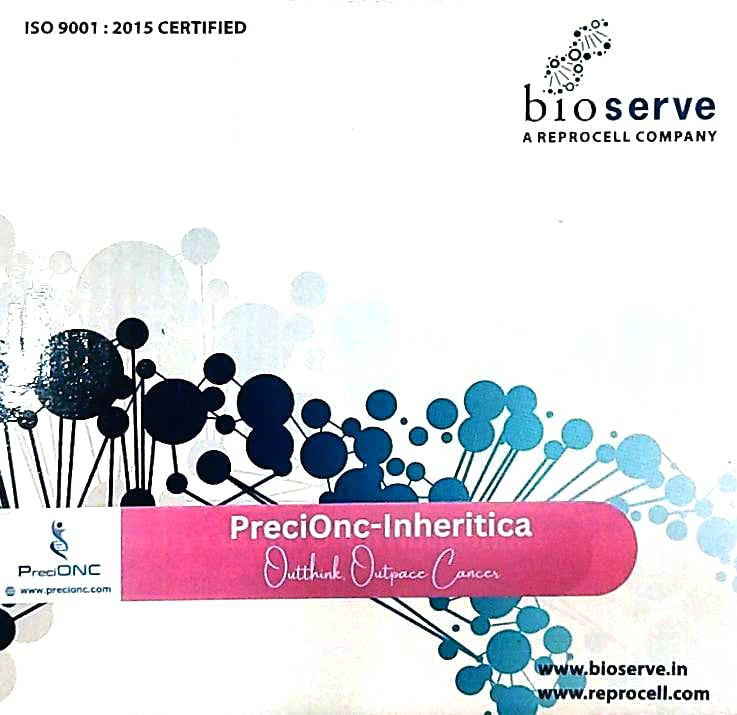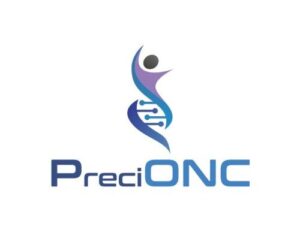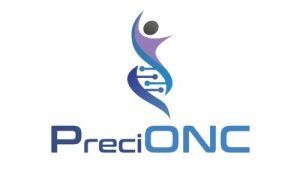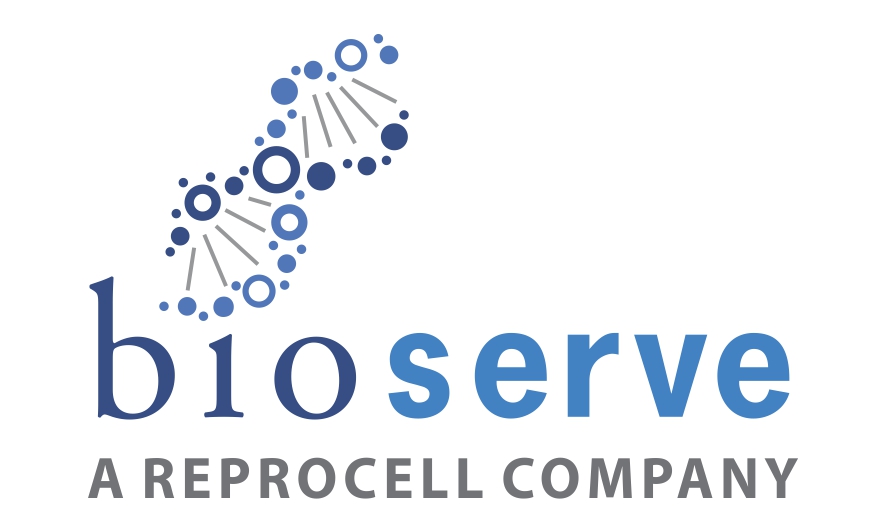PreciOnc-Inheritica
What is this test about?
In families with medical history of multiple cancer diagnoses among different family members, genetic tests are used to look for harmful inherited gene changes or mutations that may be present in a family. The standard approach uses tests that look for harmful variants in multiple genes at the same time. These tests, called multigene (or panel) tests, are often used when there is not a known gene mutation in a family. Inheritica Hereditary cancer test is a Next generation sequencing based test which simultaneously analyses > 140 genes which are closely associated with major cancer types or inherited cancer syndromes.
Who should consider testing?
- Family member with a known inherited harmful genetic change that increases cancer risk
- If you or a family member has cancer diagnosed at a young age (for example, Triple-negative breast cancer, Ovarian or colon cancer diagnosed before age 50)
- Several different types of cancer occur in the same person
- Cancer was diagnosed in multiple family members, particularly with patterns such as
- several first-degree relatives (the parents, siblings, or children of an individual) with the same type of cancer
- family members with breast or ovarian cancer
- family members with colon cancer and endometrial cancer
- If you or a family member has cancer in both organs in a set of paired organs, such as both kidneys or both breasts
- If you or a family member has Rare types of cancer (for example, male breast cancer)
- The presence of birth defects that are known to be associated with inherited cancer syndromes, such as certain noncancerous illnesses or physical abnormalities

PreciOnc-Inheritica Kit
(Price: 21000/- rupees) click here to order >>>
How is this test different?
This test is performed using Saliva sample without any need of Doctor’s prescription or a blood draw. This means that you can order this test from the comfort of your home. This test analyses > 140 genes closely associated with various cancer related pathways. These genes combined can test predisposition risk for following cancer types
Breast, Ovarian, Colorectal, Endometrial, Gastro-Intestinal, Renal, Pancreatic, Brain, Eye, Osteosarcoma, Rhabdomyosarcoma, Familial Melanoma, Familial adenomatous polyposis-1, Endocrine tumors including multiple Endocrine neoplasia 1
Some important familial syndromes are also covered under this test:
Lynch syndrome, Von-Hippel-Lindau, Li-Fraumeni, Birt-Hogg-Dube, Gorlin, Fanconi Anaemia, Turcot syndrome, Bloom syndrome, Gardner syndrome, Familial Wilms Tumour, Noonan syndrome 1
How will the test results help me?
Early screening is the key for cancer management. A positive test result means you have a higher-than-average risk of developing breast, ovarian and other cancers (as listed above). Knowing you have a gene mutation also means you can take steps to lower your risk and help prevent cancer. You can discuss the results with your health care provider who in turn will chalk out an efficient management strategy personalised to your health needs. These may include lifestyle modifications, enhanced screenings, risk reducing surgeries (prophylactic oophorectomy/ mastectomy) or chemoprevention. You may also choose to have no treatment at all, but that will be an informed decision you will make for yourself.
Genetic tests can reveal information not only about the person being tested but also about that person’s blood relatives. Family members may have different opinions about whether they want to know about the inherited change that increases their cancer risk.
Inheritance of genetic changes/ mutations
How to take this test?
- Order the test on our website by making the payment or you may contact us for payment related queries.
- Download the clinical questionnaire available and fill in your details and send us through the email _____________. These details are extremely important & help us in clinal corelation of your genetic results.
- We will send a saliva collection kit at the address provided by you in the form.
- The kit comes with instructions on how to collect the saliva sample.
- Follow the simple instructions given in the kit and let us know when the sample is ready for pickup.
- The sample is picked up and arrives at our laboratory.
- Laboratory analyses of your sample and quality check processes are updated to you and a comprehensive genetic report is sent to you via email.


